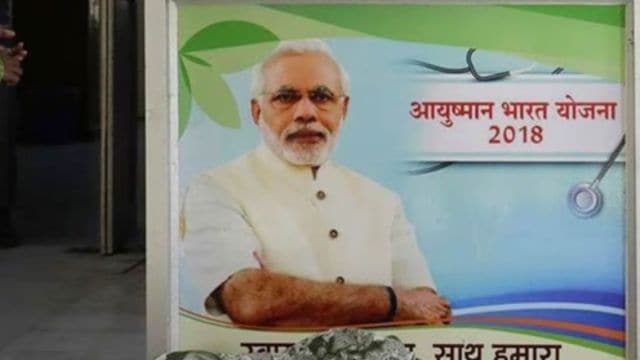State health dept gets the ball rolling to implement Ayushman Bharat in Delhi
A draft note, to be sent to the Cabinet, proposes merging state health schemes with Ayushman Bharat and establishing a task force to oversee their integration
 The health insurance scheme has been implemented in all states except West Bengal and Delhi (Express Archives)
The health insurance scheme has been implemented in all states except West Bengal and Delhi (Express Archives)A week after the BJP’s victory in Delhi, the state health department began the initial process to launch Ayushman Bharat, the flagship health insurance scheme of the Narendra Modi-led government, in the national capital. Officials said the department has drafted a “preparatory note”, outlining the basic blueprint for the scheme’s potential launch in the city, which will be forwarded to the Cabinet once it is formed.
The health insurance scheme has been implemented in all states except West Bengal and Delhi.
The note includes approving implementation of the Ayushman Bharat Pradhan Mantri Jan Arogya Yojana (AB-PMJAY) with a Rs 10 lakh cover per family, merging Delhi Arogya Kosh (DAK) with Ayushman Bharat, and establishing a task force to oversee their integration.
DAK is a registered society that provides financial assistance to the extent of Rs 5 lakh to eligible patients for treatment of any illness /disease in government hospitals. Constituted in 2011, it has five components/schemes — financial assistance to EWS patients, free high-end radiological diagnostic tests, cashless specified surgeries, RTA (Road Traffic Accident) (‘i.e. Farishtey Scheme’), and cashless dialysis.
The note was prepared after Union Home Secretary Govind Mohan held a meeting with Delhi Chief Secretary Dharmendra and senior government officials on Thursday to review the progress and implementation of the Centre’s flagship schemes in the Capital.
An official said although the Cabinet Note is yet to be finalised due to the need for inter-departmental consultations, the state health department is seeking consultation from various branches as well.
According to the proposal, the scheme will deliver comprehensive coverage of Rs 10 lakh per family annually — combining Rs 5 lakh for secondary/tertiary care hospitalisation under the central scheme with an additional Rs 5 lakh through state collaboration. “This landmark programme addresses critical healthcare inequities, ensuring Delhi’s underprivileged communities gain a robust financial safety net and equitable access to quality medical care,” it said.
The proposal includes providing universal health coverage to all eligible families in Delhi, having income up to Rs 3 lakh per annum, and includes those covered under the Delhi Arogya Kosh and other schemes.
A total of 5,88,426 families have been identified under the Socio-Economic Caste Census (SECC) 2011. Other vulnerable groups and all senior citizens above 70 years of age will also be covered.
According to an official, the scheme will be integrated with Delhi’s existing healthcare infrastructure, including government hospitals and mohalla clinics. Over 1,500 medical procedures, including critical care, surgeries, and diagnostics will also be covered.
To speed up the implementation, officials said, various departments will be providing data to the health department.
– Officials from Delhi Arogya Kosh (DAK) will provide the number of existing beneficiaries, fund allocation, source of funds, current inclusion criteria, and current functioning and status of the scheme.
– The nursing home cell will provide data on existing registered private hospitals and nursing homes.
– The accounts and finance branch of the Directorate General of Health Services (DGHS) will assist the department in preparing financial implications.
– The Delhi Government Employees Health Scheme will provide data on the number of beneficiaries as well as the pros and cons of inclusion and non-inclusion of beneficiaries under the scheme.
– The Planning Branch, which comes under the DGHS, will provide data on existing and proposed healthcare infrastructure in Delhi and facilitate infrastructure development.







